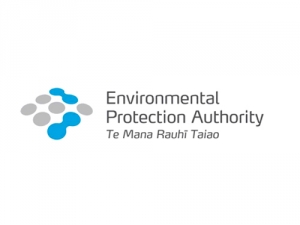EPA chief executive to step down
Allan Freeth, chief executive of the Environmental Protection Authority (EPA) has announced he is resigning.
 The EPA regulates hazardous substances as part of its role to protect the health and safety of people and the environment.
The EPA regulates hazardous substances as part of its role to protect the health and safety of people and the environment.
People living on farms or lifestyle blocks are advised to check all buildings and other structures on their property to make sure any hazardous substances are stored safely and securely.
Commonly used chemicals that are kept out in the open so that they can be easily accessed when needed could be a toxic trap for curious children.
They need to be locked away if children are visiting.
The advice is part of a push by the Environmental Protection Authority (EPA) to ensure people visiting farms and homes are safe this summer.
The EPA regulates hazardous substances as part of its role to protect the health and safety of people and the environment. Everyone has a responsibility to keep themselves and others safe from hazardous substances in and around their homes, says the EPA's hazardous substances compliance manager, Ray McMillan.
"The small amount of thought and preparation needed to safety-proof a home could prevent a catastrophe from occurring," he says.
About 90 children aged under five end up in hospital each year after swallowing or being exposed to chemicals.
McMillan says small children exploring an unfamiliar property are at the greatest risk of being harmed.
The EPA has some simple advice to help people keep their visitors safe these holidays.
· Know which chemicals you have on your property.
· Read the label and do what it says.
· Lock up chemicals or store them up high and out of sight.
· Put chemicals away.
· Keep the number for the Poisons Centre close: 0800 764 766 (0800 Poison). The Poisons Centre has a 24-hour phone line for advice about poisonings. Have this number on your fridge and programme it into your mobile phone. You can call any time you need advice about poisons, not just in an emergency.
Even substances marketed as natural, organic or environmentally friendly can be hazardous substances.
"Christmas is supposed to be a time of joy, but when people are poisoned or exposed to harmful chemicals, it could become a tragedy," says McMillan.
According to Ravensdown's most recent Market Outlook report, a combination of geopolitical movements and volatile market responses are impacting the global fertiliser landscape.
Environment Canterbury, alongside industry partners and a group of farmers, is encouraging farmers to consider composting as an environmentally friendly alternative to offal pits.
A New Zealand dairy industry leader believes the free trade deal announced with India delivers wins for the sector.
The Coalition Government will need the support of at least one opposition party to ratify the free trade deal with India.
Primary sector leaders have welcomed the announcement of a Free Trade Agreement between India and New Zealand.
At Pāmu’s Kepler Farm in Manapouri, mating has wrapped up at the across-breed Beef Progeny Test.

OPINION: The release of the Natural Environment Bill and Planning Bill to replace the Resource Management Act is a red-letter day…
OPINION: Federated Farmers has launched a new campaign, swapping ‘The Twelve Days of Christmas’ for ‘The Twelve Pests of Christmas’ to…